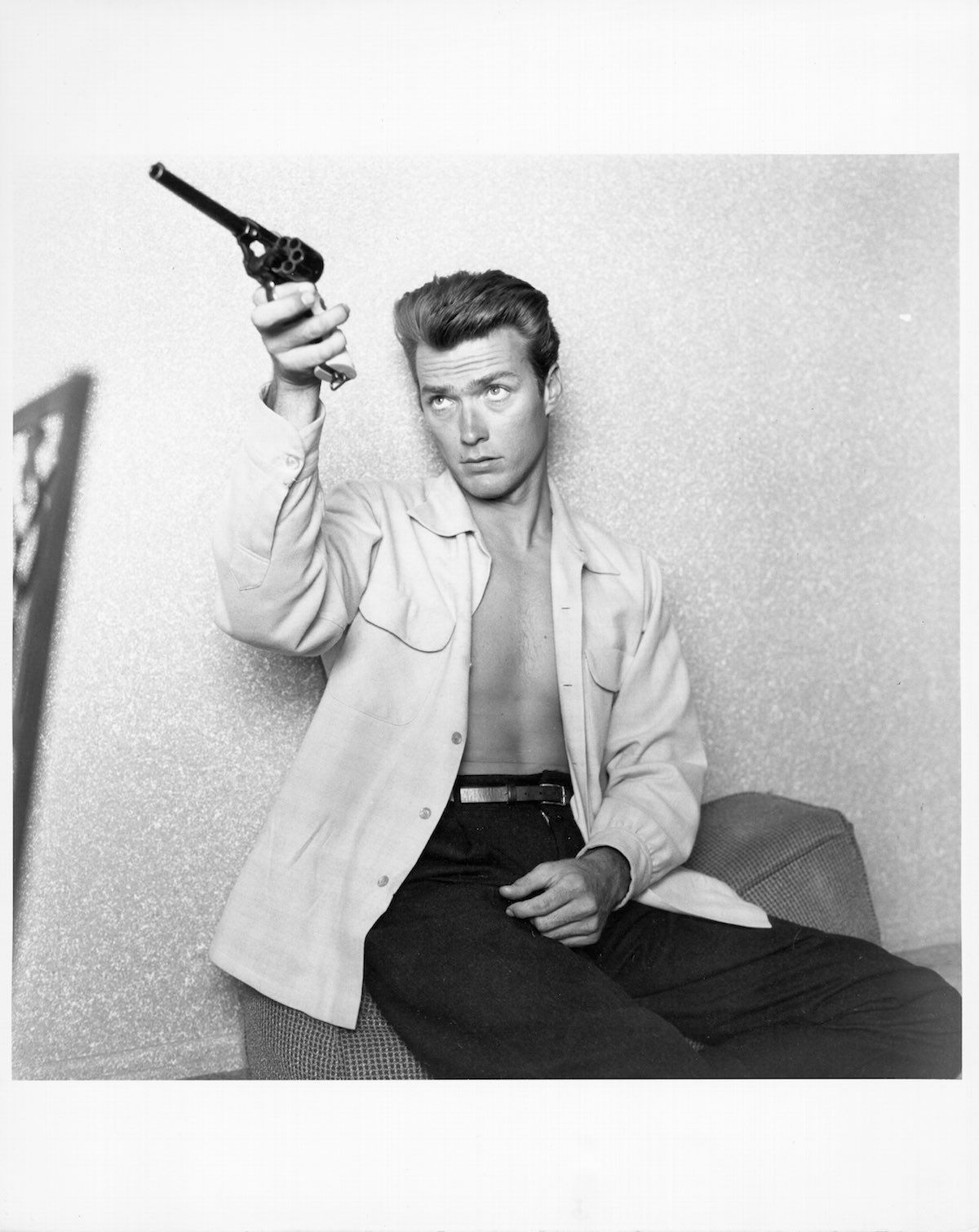Young Clint Eastwood has long been a subject of fascination for film enthusiasts and casual viewers alike. From his humble beginnings to becoming one of the most recognized names in Hollywood, Eastwood’s early life and career set the stage for his remarkable journey in the film industry. This article delves into the life of Clint Eastwood, exploring his formative years, rise to fame, and the impact he has had on cinema.
Join us as we explore the life of Young Clint Eastwood, offering insights and details that highlight his extraordinary journey in the world of entertainment.
Table of Contents
- Early Life and Background
- Education and Early Influences
- First Steps into Acting
- Breakthrough Role in 'Rawhide'
- Personal Life and Relationships
- Transition to Film
- Impact on Cinema and Legacy
- Conclusion
Early Life and Background
Clint Eastwood was born on May 31, 1930, in San Francisco, California. He was raised in a working-class family, with his father, a steelworker, and his mother, a homemaker. This background instilled in him a strong work ethic and a deep appreciation for the value of perseverance.
Eastwood spent most of his childhood in the San Francisco Bay Area. His experiences growing up during the Great Depression greatly influenced his worldview and outlook on life. As a young boy, he developed a passion for music and sports, which later contributed to his charismatic presence on screen.
Throughout his early years, Eastwood faced numerous challenges, including financial instability and family issues. However, these hardships only fueled his determination to succeed in life and the entertainment industry.
Education and Early Influences
After high school, Eastwood briefly attended Los Angeles City College but dropped out to enlist in the U.S. Army during the Korean War. His time in the military provided him with valuable discipline and life experiences.
Upon returning to civilian life, Eastwood pursued acting and began taking classes at the College of the Pacific. He was influenced by various actors and filmmakers, learning the craft by observing their techniques and performances.
First Steps into Acting
Clint Eastwood's first significant break came in the late 1950s when he was cast in the television series "Rawhide," which debuted in 1959. This role as Rowdy Yates marked his entry into the world of acting and allowed him to showcase his talents to a broader audience.
During this time, Eastwood also worked on various projects, including films and commercials. His rugged good looks and charismatic screen presence quickly garnered attention, paving the way for future opportunities.
Breakthrough Role in 'Rawhide'
Eastwood's role in "Rawhide" became a significant turning point in his career. The series not only solidified his status as a leading man but also introduced him to a wider fanbase. The show ran for eight seasons, allowing Eastwood to hone his skills and develop his unique style.
His portrayal of Rowdy Yates was marked by a blend of toughness and vulnerability, characteristics that would become synonymous with Eastwood's later roles. The success of "Rawhide" opened doors for Eastwood in feature films, including the famed "Dollars Trilogy" directed by Sergio Leone.
Personal Life and Relationships
Throughout the years, Clint Eastwood's personal life has been as eventful as his professional one. He has been married twice and has several children from different relationships. His first marriage to Maggie Johnson lasted from 1953 to 1984, and they had two children together.
Eastwood's relationships have often been in the spotlight, with various romances and partnerships, including long-term relationships with actresses Sondra Locke and Frances Fisher. These experiences have been reflected in his films, often exploring themes of love, loss, and redemption.
Transition to Film
As Eastwood's popularity grew, so did his ambition to transition from television to film. His first major film role came in "A Fistful of Dollars" (1964), which catapulted him to international stardom. This film, along with its sequels, established Eastwood as a household name and a leading figure in the Western genre.
Eastwood continued to challenge himself as an actor and later transitioned into directing, producing, and writing. His directorial debut, "Play Misty for Me" (1971), showcased his versatility and creative vision, further solidifying his status in Hollywood.
Impact on Cinema and Legacy
Clint Eastwood's impact on cinema extends beyond his roles as an actor. He has been a pioneer in the film industry, directing and producing critically acclaimed films such as "Unforgiven" and "Million Dollar Baby," both of which received numerous awards and accolades.
His unique storytelling approach and ability to tackle complex themes have left an indelible mark on filmmaking. Eastwood's legacy continues to inspire new generations of filmmakers and actors, and his contributions to the arts are celebrated worldwide.
Conclusion
In conclusion, Young Clint Eastwood’s journey from a modest upbringing to becoming a Hollywood icon is a testament to his hard work and determination. His early years laid the foundation for a successful career characterized by versatility and innovation.
As we reflect on his life and contributions to cinema, we invite readers to share their thoughts in the comments below and explore more articles on this fascinating subject.
Thank you for taking the time to learn about Young Clint Eastwood. We hope you found this article informative and engaging. Be sure to check back for more insights and stories from the world of entertainment!
You Might Also Like
Matthew Perry Young: The Early Life And Career Of The "Friends" StarKatt Williams: The Comedic Genius Behind The Laughter
Morgan Freeman's Wife: Exploring His Life, Love, And Legacy
Unveiling The Life Of Anthony Starr's Wife: A Deep Dive Into Their Relationship And Family
Kaitlan Collins Husband: An In-Depth Look At Her Personal Life And Relationships
Article Recommendations


